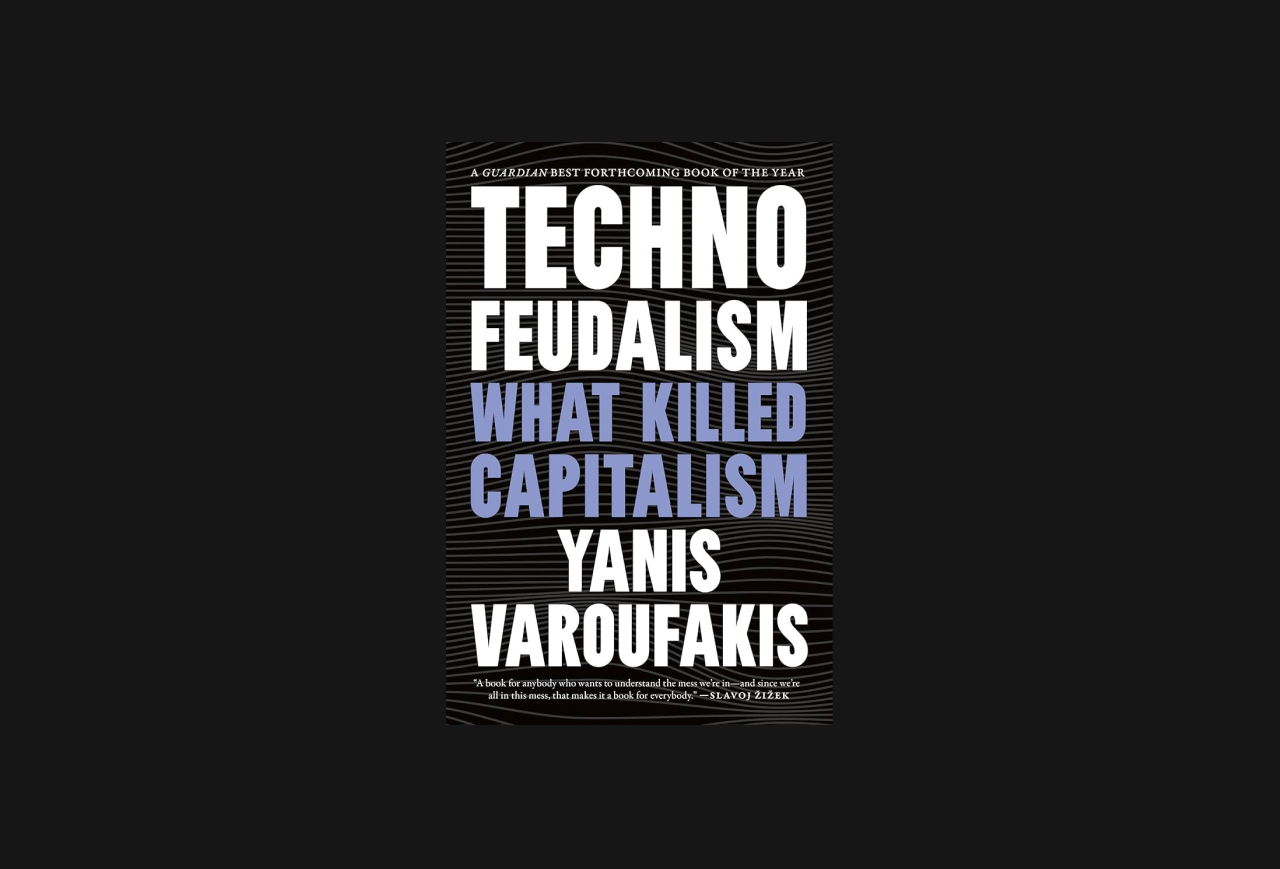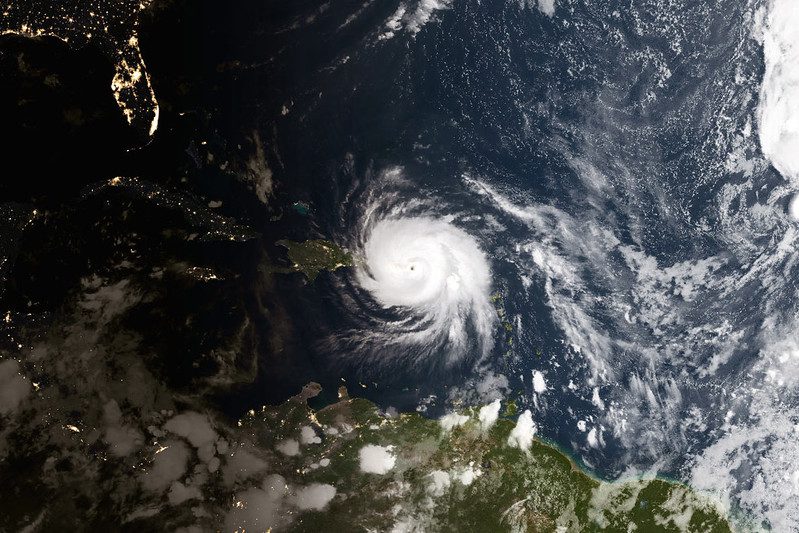Yanis Yaroufakis’s Technofeudalism is a brilliant book. Let me propose an additional chapter and theme: militarism.
Let me suggest that today’s ‘cloudalists’—the owners of internet platforms—are the offspring of America’s techno-military complex and their system of ‘cloud capitalism’ is itself reproducing that permanent war economy.
Yaroufakis’s insight is that capitalism has been captured by the cloudalists who have established new forms of monopoly over markets and the manufacture of desire. These cloudlords began as capitalist entrepreneurs seeking profit but morphed into the ultimate rentiers, collecting rent from vassal capitalists (lower ranking companies that pay them to use their platforms), cloud proles (the underpaid precariat who labor for them) and cloud serfs (the rest of us, who hand over our personal data for free). The reproduction and expansion of cloudalist imperia not only impoverishes everyone except its overlords but eviscerates freedoms, narrowing them to the meaningless consumerist narcotic of being able to buy endless varieties of the same thing. This is technofeudalism and it has killed capitalism.
Technofeudalism hasn’t killed markets. Just as feudal lords and peasants had markets to exchange goods, so too there are markets within technofeudal domains. Sellers set out their stalls and pay rent to the platform owner. Data on buyers’ every fleeting fancy as well as actual purchases are all hoovered up by the cloudlords. Profit—the return to capital earned by entrepreneurs for risking their capital—exists within a margin, accruing to those vassal capitalists approved by the cloudalists, at levels set by the latter.
Economists define rent as the payment to an owner of an asset above what is required for that asset to be brought into production. This (and any other) definition presupposes a property ownership regime. This is where the new chapter to add to Varoufakis’s account begins. A property regime rests on a political settlement, and in turn that combines violence and material reward in some form of contract. Historically this has been formulae whereby landowners, traders and manufacturers—each of whom have money, though each thinks of it differently—make a deal with specialists in violence, for mutual benefit. The technofeudal political settlement isn’t an exception.
Varoufakis correctly describes medieval feudalism as a means of organizing production on the basis of land rents and a captured peasantry. But it was also a self-reproducing social-military hierarchy. Among the duties owed by vassals and serfs was answering the call to arms. Feudal societies were permanent military economies.
Technofeudal militarism has similarities as well as differences.
The infrastructure of technofeudalism is the internet. Varoufakis relishes the irony whereby the early internet was designed by the technostructure arising from President Roosevelt’s wartime deal with American industry, in order to serve the permanent war economy of the national security state, with the specific task of coordinating the nuclear arsenal in an efficient manner without a central hub. One can trace its roots further back, to the origins of digital computing in World War Two codebreaking, and the ‘liberal militarism’ of the Anglophone Atlantic powers, with their shared ‘pax technologica’, namely financial empire backed by the high-tech deterrent of the capacity to destroy enemy cities from a safe distance.
Militarism in its contemporary techno-corporatist form has a few things in common with its pre-capitalist forebears. Among these is how it functions through rent extraction and allocation, based ultimately on its power of coercion.
Varoufakis hints at this too. In his discussion of how cloud capitalists can be brought under some kind of political control, he writes:
Indeed, the great irony, from a Western perspective, is that the only political force that can do anything to keep the cloudalists in check and thus the hope of democracy alive is the Chinese Communist Party. It was President Xi who placed strict limits on Chinese cloudalists, like Jack Ma, in an explicit bid to keep China’s cloud finance within what the party considers to be acceptable bounds – its own. (p. 177)
How did President Xi do this? The Chinese dictator can make Chinese cloud lords disappear. Unlike in America, where there’s still a corporate Magna Carta to protect the privileges of the corporate barons, in China their counterparts serve at the pleasure of the despot. The president possesses not just a monopoly on the legitimate use of force, but also the sole authority to decide when and against whom that force can be used.
This points to a rewriting of the political settlement that establishes the relationship between capital, violence, state finance and institutions regulated by law.
Medieval feudalism was an order of arms with a norm of armed conflict. In that era, ‘peace’ was a vision of mystics. War was so normalized that it made no sense to speak of ‘militarism.’ Secular, normative peace was invented by Enlightenment liberals at the dawn of capitalism. Though perpetual peace and world peace were never achieved, in the era of liberal capitalism, war came to be seen as an aberration, a failure.
If technofeudalism has indeed killed capitalism, replacing profit with rent and markets with fiefdoms, we would expect to see it replacing the norm of peace with the expectation of war. And indeed we do.
Writers on military affairs have been dazzled by the potential and the peril of digital technologies. It’s a revolution in the affairs of soldiers, and its implications for the battlefield are yet to be understood.
The question of who controls the technology to what end is less inscrutable. The incipient political settlement is actually in plain sight. We know the quarrels and pacts among the masters of government and the lords of the cloud. Governments want to protect their boundaries, make forays beyond them, control strategic resources, and police their citizens and spy on others. The cloudalists have technology, expertise, money and fame and want more of all. In China, it’s clear who’s in charge. In America, we are set for a titanic political contest, because the cloudlords have the freedom to throw in their political lot with whomever they choose.
Globally, whatever the outcome of the American contest, there are two sovereigns of the cloud: the US and China. Their domains are imperial. Other states are vassals, mercenaries or guerrillas.
The rivalry between the two cloud sovereigns is fierce. Henry Farrell and Abraham Newman’s Underground Empire: How America weaponized the world economy, describes the US Treasury as a ‘non-combatant command.’ They show how Washington decided to sacrifice core principles of the capitalist market—respect for private property and free movement of capital—for the sake of national security priorities.
Data, both big and individualized, are the most strategic and lucrative resource of today. So too are the machines and infrastructure for processing and transmitting data. Chris Miller’s Chip Wars: The fight for the world’s most critical technology explores how the US-China contest over microchips is at the center of both trade war and arms race. The US fight against Huawei was waged to stop China setting up something that America monopolized, namely a global communication network open to its interception and interruption. At the top end of the scale, there’s also an armed contest for control over space, beginning with the satellites on which digital communications depend.
Technofeudalism is militarized and imperial as well as hierarchical and extractive. The technologies and techniques are new, the politics are old. And just as profit has been subordinated to rent, so too militarized technofeudalism appears set to establish war as the normal state of affairs.
Yanis Yaroufakis’s Technofeudalism is a brilliant book. Let me propose an additional chapter and theme: militarism.
Let me suggest that today’s ‘cloudalists’—the owners of internet platforms—are the offspring of America’s techno-military complex and their system of ‘cloud capitalism’ is itself reproducing that permanent war economy.
Yaroufakis’s insight is that capitalism has been captured by the cloudalists who have established new forms of monopoly over markets and the manufacture of desire. These cloudlords began as capitalist entrepreneurs seeking profit but morphed into the ultimate rentiers, collecting rent from vassal capitalists (lower ranking companies that pay them to use their platforms), cloud proles (the underpaid precariat who labor for them) and cloud serfs (the rest of us, who hand over our personal data for free). The reproduction and expansion of cloudalist imperia not only impoverishes everyone except its overlords but eviscerates freedoms, narrowing them to the meaningless consumerist narcotic of being able to buy endless varieties of the same thing. This is technofeudalism and it has killed capitalism.
Technofeudalism hasn’t killed markets. Just as feudal lords and peasants had markets to exchange goods, so too there are markets within technofeudal domains. Sellers set out their stalls and pay rent to the platform owner. Data on buyers’ every fleeting fancy as well as actual purchases are all hoovered up by the cloudlords. Profit—the return to capital earned by entrepreneurs for risking their capital—exists within a margin, accruing to those vassal capitalists approved by the cloudalists, at levels set by the latter.
Economists define rent as the payment to an owner of an asset above what is required for that asset to be brought into production. This (and any other) definition presupposes a property ownership regime. This is where the new chapter to add to Varoufakis’s account begins. A property regime rests on a political settlement, and in turn that combines violence and material reward in some form of contract. Historically this has been formulae whereby landowners, traders and manufacturers—each of whom have money, though each thinks of it differently—make a deal with specialists in violence, for mutual benefit. The technofeudal political settlement isn’t an exception.
Varoufakis correctly describes medieval feudalism as a means of organizing production on the basis of land rents and a captured peasantry. But it was also a self-reproducing social-military hierarchy. Among the duties owed by vassals and serfs was answering the call to arms. Feudal societies were permanent military economies.
Technofeudal militarism has similarities as well as differences.
The infrastructure of technofeudalism is the internet. Varoufakis relishes the irony whereby the early internet was designed by the technostructure arising from President Roosevelt’s wartime deal with American industry, in order to serve the permanent war economy of the national security state, with the specific task of coordinating the nuclear arsenal in an efficient manner without a central hub. One can trace its roots further back, to the origins of digital computing in World War Two codebreaking, and the ‘liberal militarism’ of the Anglophone Atlantic powers, with their shared ‘pax technologica’, namely financial empire backed by the high-tech deterrent of the capacity to destroy enemy cities from a safe distance.
Militarism in its contemporary techno-corporatist form has a few things in common with its pre-capitalist forebears. Among these is how it functions through rent extraction and allocation, based ultimately on its power of coercion.
Varoufakis hints at this too. In his discussion of how cloud capitalists can be brought under some kind of political control, he writes:
Indeed, the great irony, from a Western perspective, is that the only political force that can do anything to keep the cloudalists in check and thus the hope of democracy alive is the Chinese Communist Party. It was President Xi who placed strict limits on Chinese cloudalists, like Jack Ma, in an explicit bid to keep China’s cloud finance within what the party considers to be acceptable bounds – its own. (p. 177)
How did President Xi do this? The Chinese dictator can make Chinese cloud lords disappear. Unlike in America, where there’s still a corporate Magna Carta to protect the privileges of the corporate barons, in China their counterparts serve at the pleasure of the despot. The president possesses not just a monopoly on the legitimate use of force, but also the sole authority to decide when and against whom that force can be used.
This points to a rewriting of the political settlement that establishes the relationship between capital, violence, state finance and institutions regulated by law.
Medieval feudalism was an order of arms with a norm of armed conflict. In that era, ‘peace’ was a vision of mystics. War was so normalized that it made no sense to speak of ‘militarism.’ Secular, normative peace was invented by Enlightenment liberals at the dawn of capitalism. Though perpetual peace and world peace were never achieved, in the era of liberal capitalism, war came to be seen as an aberration, a failure.
If technofeudalism has indeed killed capitalism, replacing profit with rent and markets with fiefdoms, we would expect to see it replacing the norm of peace with the expectation of war. And indeed we do.
Writers on military affairs have been dazzled by the potential and the peril of digital technologies. It’s a revolution in the affairs of soldiers, and its implications for the battlefield are yet to be understood.
The question of who controls the technology to what end is less inscrutable. The incipient political settlement is actually in plain sight. We know the quarrels and pacts among the masters of government and the lords of the cloud. Governments want to protect their boundaries, make forays beyond them, control strategic resources, and police their citizens and spy on others. The cloudalists have technology, expertise, money and fame and want more of all. In China, it’s clear who’s in charge. In America, we are set for a titanic political contest, because the cloudlords have the freedom to throw in their political lot with whomever they choose.
Globally, whatever the outcome of the American contest, there are two sovereigns of the cloud: the US and China. Their domains are imperial. Other states are vassals, mercenaries or guerrillas.
The rivalry between the two cloud sovereigns is fierce. Henry Farrell and Abraham Newman’s Underground Empire: How America weaponized the world economy, describes the US Treasury as a ‘non-combatant command.’ They show how Washington decided to sacrifice core principles of the capitalist market—respect for private property and free movement of capital—for the sake of national security priorities.
Data, both big and individualized, are the most strategic and lucrative resource of today. So too are the machines and infrastructure for processing and transmitting data. Chris Miller’s Chip Wars: The fight for the world’s most critical technology explores how the US-China contest over microchips is at the center of both trade war and arms race. The US fight against Huawei was waged to stop China setting up something that America monopolized, namely a global communication network open to its interception and interruption. At the top end of the scale, there’s also an armed contest for control over space, beginning with the satellites on which digital communications depend.
Technofeudalism is militarized and imperial as well as hierarchical and extractive. The technologies and techniques are new, the politics are old. And just as profit has been subordinated to rent, so too militarized technofeudalism appears set to establish war as the normal state of affairs.



